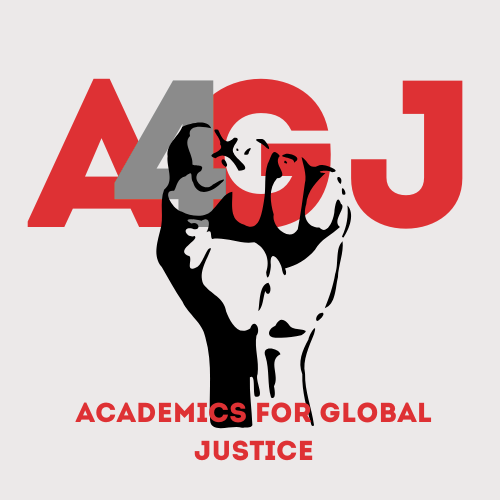Our Call
Forty-four years ago, Angela Davis wrote on the intersection of race and gender:
“How could Susan B. Anthony claim to believe in human rights and political equality and at the same time counsel the members of her organization to remain silent on the issue of racism? Bourgeois ideology — and particularly its racist ingredients — must really possess the power of dissolving real images of terror into obscurity and insignificance, and of fading horrible cries of suffering human beings into barely audible murmurings and then silence.” – Davis, A. Y. (1983). Women, race & class. Vintage Books.
However ‘simplistic’ some may find it, this excerpt is poignant in how it captures the gap between what we claim we stand for and how we actually pursue those values. As academics, we believe in the importance of applying this scrutiny to the institutions, processes, and representations that produce knowledge, including ourselves.
To unveil and address the entrenchment of academia in exploitative systems, we are assembling a multidisciplinary group of academics. We aim to start new initiatives that actively resist this involvement and to support existing ones in this area. We will address the knowledge gaps resulting from this entrenchment by producing new, freer outputs.
Primarily composed of researchers in STEM (specifically in Artificial Intelligence, Machine Learning, and Statistics), Academics for Global Justice gladly welcomes the involvement and contributions of members across all fields. As we strive to cultivate an intersectional space, we especially encourage those of you affiliated with underrepresented groups and institutions from the Global South to join the conversation.
We will conduct our work in the ways we know best:
- Understand how we can collectively deconstruct our beliefs.
- Study and build on our skills.
- Discuss and debate our ideas.
- Carry out meaningful data collection, analysis, and other related tasks.
- Write peer-reviewed scientific papers and reports.
- Teach and democratize knowledge.
This is a horizontal and decentralized group, and we welcome suggestions and initiatives from anyone interested in joining us. Those of you who wish to collaborate can get in touch or complete this form: https://forms.gle/ZPycJ9i5FWrttNMF6. We ask anyone who fills out the form to also endorse Clause-0 (https://ethicalaialliance.org/clause-0), an open letter by AI practitioners, researchers, and professionals working across the tech industry, calling for urgent responsibility in how AI and cloud infrastructure are deployed.
The words of Angela Davis are relevant to the discrimination against minority groups that we, as academics in Western institutions, passively observe in our daily lives.
They are relevant to the genocide and the numerous international law violations, including their latest assault on the Global Sumud Flotilla in international waters, that the Israeli government is currently perpetrating on the Palestinian people with impunity. A genocide executed amidst the silence of many scientists, scholars, and academics, whose pursuit of knowledge “for the betterment of humanity” now rings hollow.
Our discourse is directed at us, academics, and to the various compromises we accept every day. Among those reading this piece, there are surely bright minds carrying out transformative research work to cure cancer, design fairer AI systems, or make our air cleaner, among other things. For that, we thank you all sincerely. However, we urge you to ask yourselves:
Is the research work we conduct enough when there are people out there who will never benefit from its outputs?
Is it truly transformative when the structures that fund it and bring it to fruition do so by exploiting people and suppressing their voices?
How can we genuinely say that we are working in the service of humanity when we remain silent in the face of a preventable genocide so that we maintain the privilege of continuing our research?
How can we justify our complacency through dehumanizing utilitarian logic and cost-benefit analyses?
We no longer want to conveniently hide behind the supposed ‘complexity’ of this situation. The ways in which evil is currently perpetrated and trivialized should be brought to the center/forefront of our discourse.
Being on the right side of history means standing unconditionally on the side of love and solidarity. To prioritize only a few struggles for our direct action will unequivocally corrupt our convictions and certainly dilute our results. Every time Israel murders a Palestinian civilian, we are set back in our fight against gender inequality, we lose terrain in our battle for queer rights, and we are further from freedom of speech than we were yesterday.
